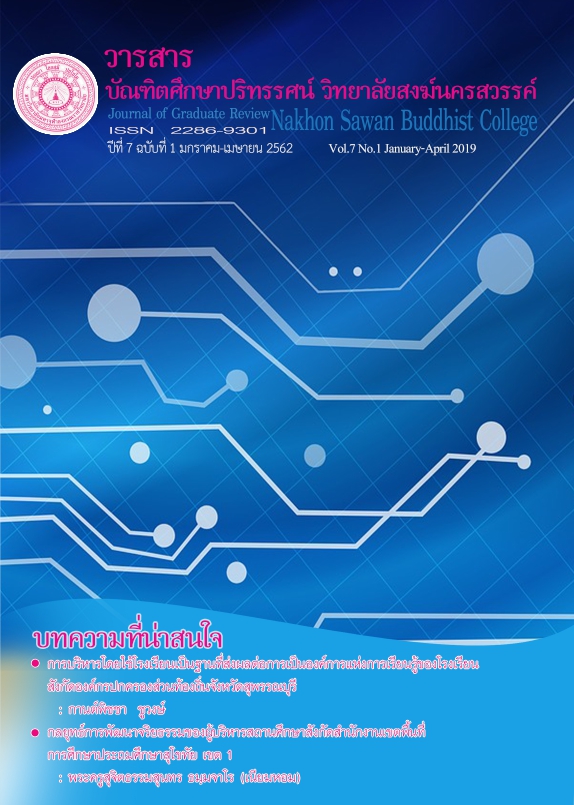The Influence of Buddhist Morality towards Morality in Triphumphraruang อิทธิพลจริยธรรมแนวพุทธต่อจริยธรรมในไตรภูมิพระร่วง
Main Article Content
Abstract
Buddhist Ethics is the principle or guideline to the noble life. It is the way to the ultimate goal which is an ideal of life covered to the moral judgement, namely; what is the good or bad action, should do or should not do. The aim of its is the person has a good life, be benevolent, can live in society happily. Those who follow the Buddhist principles can earn their life correctly. Then the Buddhist Ethics is way for good life.
In Buddhism, moral judgement is principle to judge the action “good or bad, there are two types, 1) Unwholesome: the action is based on the root of bad action 2) Wholesome: the action is based on the roots of good action. Both are used to consider human’s action. From the Buddhism, we can conclude as follows; intention of action, Buddhist rule, behavior of mind, the cause and effect of action.
Tebhumikatha has been effecting to Thai tradition from the past until present. It can be divided into two parts, viz., effect to Politics and Government- the leader is impeccable in conduct and restrained in actions, he should be the righteous ruler of king who devote himself to administering services and providing welfare and aid for the people to ensure their will-being, and effect to Thai tradition and custom- it found that, past and present, Thai has the freedom, peace and gratefulness. They know how to respect to adults frequently, has loving-kindness to all animals. Beside, Tebhimikatha is still effect to the belief of Thai, especially belief in Kamma and the effect of good and bad action, that is, good deeds beget good results, while bad deeds
beget bad results. It differs according to the character of Kamma human has done and the aim of action. When they died, if do good deed, go to the heaven (Sugati), in the other hand, if do the bad deed, go to the hell (Dukgati). But these heaven and hell is not permanent state. It can be destroyed by time. But the real aim of life is to achieve the enlightenment, the state without old age, sickness and death.
From the research, it was found that the similarity and difference between Buddhist principles and Tebhumikatha is the Five Precepts and Ten Unwholesome course of actions- because it was written by reference from Tipitaka, and described distinctly by putting an example.
For the ultimate goal of life in Tebhumikatha and Buddhist principles, Tebhumikatha emphasis of abstention of evil and do the good for good life in present, well-know as worldly pleasure (Logiya Sukha), but highest Buddhist principles is enlightenment (Nibbhana) which is the greatest happiness without any desire and passion.


